Research
The Fear of the Lord is the beginning of wisdom, and knowledge of the Holy One is
understanding. (Proverb 9:10)
Research Interests
My research interests include mathematical biology, optimal control, computational
biology, mathematical modeling, ordinary and partial differential equations, difference
equations, hybrid systems, and machine learning / deep learning, quantum computing,
quantum biology, with applications to
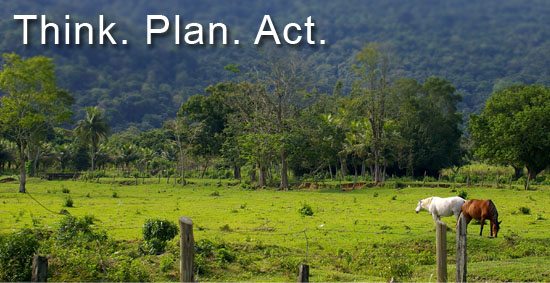
NSF's 10 Big Ideas
Mathematical biology is a growing branch of applied mathematics as the interest of modeling complex biological
systems increases. Optimal control theory is a branch of mathematics developed to
find optimal ways to control a dynamic system. Generally, the optimal control problem
consists of an objective functional, a dynamic system and the control(s). The controls
enter the dynamics in a variety of ways as coefficients, boundary terms or sources.
My research focuses on understanding the spatial and temporal patterns that arise
in dynamic biological systems and when possible, finding the best way to control the
system.
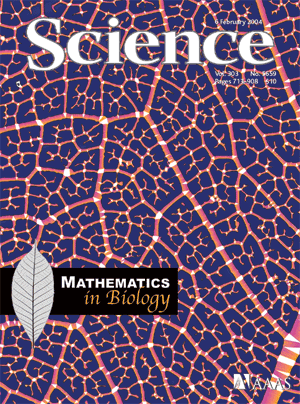 Science Feb. 6th, 2004 --- Devoted to Mathematics in Biology
Science Feb. 6th, 2004 --- Devoted to Mathematics in Biology 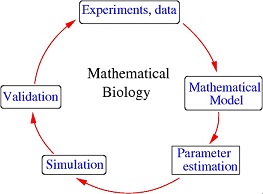
In a special collection of articles published beginning 6 February 2004, Science Magazine
and its online companion sites teamed up to explore one of the hottest interdisciplinary
collaborations in science today: the interface between mathematics and biology. In
Science, News, Viewpoint, and Review articles covered how mathematics and computation
are informing biology on a wide variety of fronts, the need for incorporating quantitative
approaches into bioscience curricula, and some of the uses -- and abuses -- of mathematical
models for biological systems.
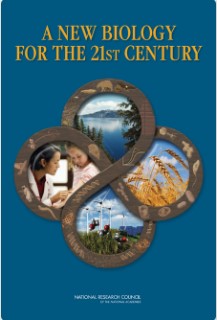 Systems Biology: A New Biology for the 21st Century, 2009. National Research Council.
Systems Biology: A New Biology for the 21st Century, 2009. National Research Council.
recommends that a "New Biology" approach--one that depends on greater integration
within biology, and closer collaboration with physical, computational, and earth scientists,
mathematicians and engineers--be used to find solutions to four key societal needs:
sustainable food production, ecosystem restoration, optimized biofuel production,
and improvement in human health. The approach calls for a coordinated effort to leverage
resources across the federal, private, and academic sectors to help meet challenges
and improve the return on life science research in general.
Research Work
Current Work
- W. Ding, R. Leander, and Z. Shuai. Mathematical Biology, Differential Equations, and
Optimal Control: A special issue in honor of Suzanne Lenhart on her 70th birthday, Numerical Algebra, Control and Optimization, 2024.
- W. Zhang, A. Pal and W. Ding. Optimal control of cancer double immune-checkpoint blockade,
2024.
- Elijah Atkins, W. Ding, and D. Wang. Major Depressive Disorder (MDD) Classification
Using Three Types of Correlations and Biomarker Exploration, 2024.
- Deep Learning applied to Infectious Disease Modeling and Healthcare, 2024.
- Quantum biology, 2024.
Other Work
- D. Wang and W. Ding, Innovative Biomarker Exploration in ASD: Combining Graph Neural Networks and Permutation
Testing on fMRI Data, submitted 2024.
- Y. Wu, X. Zhao, R. Leander and W. Ding. Optimal control of a free boundary tumor growth
model, submitted 2024.
- X. Zhao, Y. Wu, R. Leander, W. Ding and S. Lenhart. Optimal control of treatment in
a free boundary problem modeling multilayered tumor growth, submitted 2024.
- D. Wang, W. Ding and X. Yang. Autism Spectrum Disorder (ASD) Classification with Three Types of Correlations Based on ABIDE I Data, Mathematical Foundations of Computing, Vol. 8, No. 1, 113-127, 2025. PDF
- X. Li, L Cai, W Ding, Modeling the transmission dynamics of a two-strain dengue disease with infection age, International Journal of Biomathematics, 2024. doi: 10.1142/S1793524524500049 PDF
- Hong Qin; Jude Kong; Wandi Ding; Ramneek Ahluwalia; Christo El Morr; Zeynep Engin;
Jake Okechukwu Effoduh; Rebecca Hwa; Serena Jingchuan Guo; Laleh Seyyed-Kalantari;
Sylvia Kiwuwa Muyingo; Candace Makeda Moore; Ravi Parikh; Reva Schwartz; Dongxiao
Zhu; Xiaoqian Wang; Yiye Zhang. Towards Trustworthy Artificial Intelligence for Equitable
Global Health, submitted, 2023. arXiv:2309.05088
- F. Agusto, D. Bond, A. Cohen, W. Ding, R. Leander and A. Royer. Optimal Impulse Control
of West-Nile Virus, accepted by AIMS Mathematics, 7(10): 19597–19628, 2022. Doi: 10.3934/math.20221075. PDF
- Liming Cai, Lanjing Bao, Logan Rose, Jeffery Summers & Wandi Ding (2022) Malaria modeling
and optimal control using sterile insect technique and insecticide-treated net, Applicable Analysis, 101:5, 1715-1734, DOI: 10.1080/00036811.2021.1999419 PDF
Wandi Ding. Malaria Modelling, an optimal control problem. Research Outreach, May 17, 2022.
- Guest Editors: Ding, Wandi; Kang, Yun; Mubayi, Anuj. Special Issue: Mathematical modeling and analysis of social and ecological determinants
for the dynamics of infectious diseases and public health policies. Math. Biosci. Eng.18 (2021), no. 6, 8535–8537. PDF
- Leander RN, Wu Y, Ding W, Nelson DE, Sinkala Z.
A model of the innate immune response to SARS-CoV-2 in the alveolar epithelium. R. Soc. Open Sci. 8: 210090, 2021.
https://doi.org/10.1098/rsos.210090 PDF
- QUBES (Quantitative Undergraduate Biology Education and Synthesis): Agent/Individual-Based Modeling Faculty Mentoring Network 2019.
- Wandi Ding, Ryan Florida, Jeffery Summers, Puran Nepal and Ben Burton.
Experience and Lessons Learned from Using SIMIODE Modeling Scenarios, PRIMUS, 29:6, 571-583, 2019. PDF
- Guest Editor: Rachel Leander, Wandi Ding and Rene Salinas.
Special Issue Dedicated to Suzanne Lenhart, Journal of Natural Resource Modeling, 31:4, 2018.
- Wandi Ding and Glenn Webb.
Optimal Control Applied to Community-acquired Methicillin-resistant Staphylococcus Aureus in Hospitals, Journal of Biological Dynamics, 11:sup1, 65-78, 2017. PDF
- James B. Hayes, Linda M. Sircy, Lauren E. Heusinkveld, Wandi Ding, Rachel N. Leander,
Erin E. McClelland and David E. Nelson.
Modulation of macrophage in ammatory NF-kB signaling by intracellular Cryptococcus
neofor- mans, Journal of Biological Chemistry, 291:30, 15614-15627, 2016. PDF
- Orou G. Gaoue, Jiang Jiang, Wandi Ding, Folashade B. Agusto and Suzanne Lenhart.
Optimal harvesting strategies for timber and non-timber forest products in tropical
ecosystems, Theoretical Ecology, 9:3, 287-297, 2016. PDF
- Huili Ma, Hui Feng and Wandi Ding.
Global asymptotic behavior of positive solutions for exponential form difference equations
with three parameters, Journal of Applied Analysis and Computation, 6:3, 600-606, 2016. PDF
- Huili Ma, Hui Feng, Jiaofeng Wang and Wandi Ding.
Boundedness and asymptotic behavior of positive solutions for difference equations
of exponential form, Journal of Nonlinear Science and Applications, 8:5, 893-899, 2015. 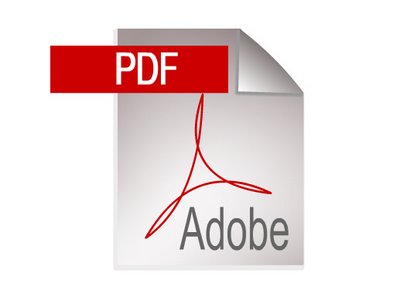
- Wandi Ding.
Wandi Ding (2015), "1-070-T-FisheryHarvest," https://www.simiode.org/resources/1319. Teacher Version Modeling Scenario PDF and Student Version PDF.
- Wandi Ding, Suzanne Lenhart and Horst Behncke.
Discrete Time Optimal Harvesting of Fish Populations with Age Structure, Letters in Biomathematics, 1:2, 193-207, 2014. 
- Wandi Ding, Raymond C. Hendon, Brandon Cathey, Evan Lancaster and Robert Germick.
Discrete Time Optimal Control Applied to Pest Control Problems, Involve, a Journal of Mathematics 7-4 (2014), 479--489. 
- Wandi Ding, Volodymyr Hrynkiv and Xiaoyu Mu.
Optimal Control Applied to Native-Invasive Species Competition via a PDE Model, Electronic Journal of Differential Equations, Vol. 2012, 237:1-18, 2012. 
- Wandi Ding and Suzanne Lenhart.
An Introduction to Optimal Control for Discrete Models with an Application to Disease
Modeling. Modeling Paradigms and Analysis of Disease Transmission Models, 109-119, DIMACS Ser. Discrete Math. Theoret. Comput. Sci., 75, Amer. Math. Soc., Providence, RI, 2010. 
- W. Ding, Suzanne Lenhart, Heather Finotti, Yuan Lou and Yuquan Ye.
Optimal Control of the Growth Coefficient on a Steady State Population Model. Nonlinear Anal. Real World Appl. 11, 688-704, 2010. 
- Wandi Ding and Suzanne Lenhart.
Optimal Harvesting of a Spatially Explicit Fishery Model. Natural Resource Modeling, 22:2, 173-211, 2009. 
Poster  at the 2007 World Conference on Natural Resource Modeling.
at the 2007 World Conference on Natural Resource Modeling.
- Wandi Ding, Louis Gross, Keith Langston, Suzanne Lenhart and Leslie A. Real.
Rabies in Raccoons: Optimal Control for a Discrete Time Model on a Spatial Grid. Journal of Biological Dynamics, 1:4, 379-393, 2007. 
- Wandi Ding.
Optimal Control on Hybrid ODE Systems with Application to a Tick Disease Model. Mathematical Biosciences and Engineering , 4:4, 633-659, 2007. 
- Grid Computing Project for Ecological Modeling and Spatial Control, 2006-07 (post-doctoral work)
- GitHub
Dissertation
Two Biological Applications of Optimal Control to Hybrid Differential Equations and
Elliptic Partial Differential Equations
Grants
From National Science Foundation
- NSF DMS #2234176: Shanks Workshop on Advances in Mathematical and Theoretical Biology,
(PI: X. Zhao, co-PIs: M. Horn, W. Ding, P. Hinow and X. Huo), $27,000, 2023-24.
- NSF DMS #1757493: REU Site: Computational Modeling and Simulation in Applied Sciences
(PI: W. Ding, co-PIs: R. Leander, W. Robertson and J. Phillips), $241,470, 2018-2023.
Summer 2019 Poster Summer 2021 Poster-1 Summer 2021 Poster-2 Summer 2022 Poster-1 Summer 2022 Poster-2
- NSF ADVANCE IT-Catalyst: NSF HRD #1409638:
A Catalyst to ADVANCE the Participation and Advancement of Women in Academic STEM
Careers at Middle Tennessee State University
(PI: B. Bartel, co-PIs: J. Iriarte-Gross, W. Ding, J. Eller and K. Petersen), $195,002, 2014-18.
2015 ADVANCE Poster PDF, 2016 ADVANCE Poster PDF, 2017 ADVANCE Brochure PDF, 2017 White Paper PDF, 2017 ADVANCE Poster PDF
From MTSU
- NIA: Non-Instructional Assignment Grant (Sabbatical leave): Fall 2020.
- MTSU LT&ITC Faculty Learning Community (FLC): Mid-Career Faculty Development Program, (with D. Raffo, G. Webber, R. Henderson,
R. Otter and T. Brinthaupt), $7,500, 2014.
- MTSU Instructional Technologies Innovation Grant (ITI) (with Z. Sinkala and R. Leander), $5,892, 2014.
- MTSU Instructional Evaluation and Development Grant (IED), $750, 2011.
To design and implement of a pilot program training for undergraduates in biological
and mathematical sciences.
- Faculty Research and Creative Activities (FRCAC), MTSU, August 2009- May 2010, $5,000.
Optimal Control Applied to Native-Invasive Population Dynamics via a PDE Model.
- NSF STEP (Stepping Up Undergraduate Research) Summer Reseach, MTSU, June-July 2009, $17,500.
Mathematical Modeling and Control of Populations: Application in Biological Pest Control.
- Faculty Research and Creative Activities (FRCAC), MTSU, August 2008- May 2009, $6,300.
Optimal Harvesting of Fish Populations with Age Structure.
- MTSU Distinguished Lecture Fund: 2009, 2010, 2011, 2012, $3,250.
Travel grants:
- SIAM Quantum Intersections Convening- Integrating Mathematical Scientists into Quantum
Research, Tysons, Virginia, October 7-9, 2024.
- Moffitt Cancer Center Integrated Mathematical Oncology (IMO) Travel Awards, IMO Workshop 9: Tumor Board Evolution, Nov. 3-8, 2019.
- Society for Mathematical Biology (SMB) grant to support our special session in the AMS Southeastern Spring Sectional Meeting
(March 27-29, 2015), $2,000, 2014.
- Society of Mathematical Biology (SMB) Travel grant , $750, 2011.
- SIAM-NSF Postdoc/Early Career Travel Award , $885, 2010.
- AWM-NSF Travel Grants for Women Researchers , $1,488, 2009.
Professional Development (Conference/Presentations/Workshops)
Conferences/Special Sessions Organzied
- AMS Special Session on Dynamics and Management in Disease or Ecological Models (associated with Gibbs Lecture by Suzanne Lenhart), at the 2024 Joint Mathematics Meetings in San Francisco, CA, January 4-5, 2024. (Co-organized with S. Lenhart and C. Edholm)
- A satellite session “Fairness in Machine Intelligence for Global Health (FairMI4GH)” of the 2023 annual meeting of the Consortium of Universities for Global Health (CUGH), April 3rd, 2023. (with Hong Qin and Jude Kong) YouTube
- AMS Spring Eastern Virtual Sectional Meeting Special Session on Modeling, Analysis, and
Control of Populations Impacted by Disease and Invasion, April 1-2, 2023. (with R.
Leander)
- Shanks Workshop on Advances in Mathematical and Theoretical, Vanderbillt University, March 17-19, 2023. (with X. Zhao, M. Horn, P. Hinow and X. Huo)
- SIMIODE ((Systemic Initiative for Modeling Investigations and Opportunities with Differential
Equations) EXPO, February 10-13, 2023. (with B. Winkel, Y. Ma and L. Noble)
- American Mathematical Society (AMS) Southeastern Spring Sectional Meeting, Special Session on Recent Trends in Mathematical
Biology, Huntsville, AL, March 27-29, 2015. (Co-
organized with Z. Sinkala)
- Society for Industrial and Applied Mathematics (SIAM) Conference on the Life Sciences MiniSymposium, Mathematical Modeling and Control
of Ecological and Epidemiological Problems, Charlotte, NC, August 4-7, 2014. (Co-organized
with R. Leander)
- American Mathematical Society (AMS) Sectional Meeting, Special Session on Diversity in Modeling and Optimal Control:
A Celebration of Suzanne Lenhart’s 60th Birthday, Knoxville, TN, March 21-23, 2014. (Co-organized with R. Fister)
-
American Mathematical Society (AMS) Special Session at the Joint Mathematics Meetings: Control of Biological and Physical
Systems, Boston January 2012. (Chair and Co-organized with S. Lenhart and V. Hrynkiv)
Selected Presentations:
- Bridging Math, Biology, and Quantum: A Journey Through Modeling and Innovations. Invited talk to No. 2 High School of Qingdao, China. August 10,
2024.
- MTSU AMPLIFY Interdisciplinary Scholarship Program:
“Mathematical Biology, Optimal Control and Deep Learning for Biological Applications,” April 5, 2024.
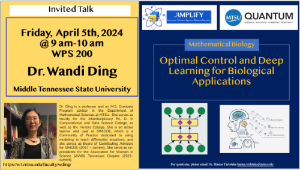
- Special Session on "Advances in Modeling Mosquito-borne Disease Dynamics and Control
Methods" at the 2023 Joint Mathematics Meetings in Boston, MA, January 4-7, 2023.
- Virginia Tech University Math Biology seminar: Oct. 19, 2022. Virtual.
https://intranet.math.vt.edu/mathbio/seminar.html
- Special Session on “Recent Advances in Mathematical Biology” at the AMS Sectional Meeting at the University of Tennessee at Chattanooga in Chattanooga, TN.
October 15-16, 2022.
- UCR Interdisciplinary Center for Quantitative Modeling in Biology, March 8, 2022. Virtual.
- Analysis and Applied Mathematics seminar talk at Kennesaw State Universtiy, November 4, 2021. Virtual.
- Xinyang Normal University, China: External Experts Colloquium, School of Mathematics and Statistics, October 30, 2021. Virtual.
- Biomathematics seminar talk at Texas Tech University. Oct. 26, 2021. Virtual.
- Society for Mathematical Biology (SMB) Annual Conference, Minisymposium: From Primate to Vectors to Humans: Understanding the underlying mechanisms of disease
transmission and control. June 13-17, 2021. Virtual.
- Joint Mathematics Meetings (JMM) meeting, AMS Special Session on Advances in Mathematical Biology, Jan 6-9, 2021, Virtual.
- AMS Fall Southeastern Virtual Sectional Meeting, Oct. 10-11, 2020. Special Session on Modern Applied Analysis.
- NIMBioS Eleventh Undergraduate Research Conferences at the Interface of Biology and Mathematics, Knoxville, TN, November 16-17, 2019. Flyer
- Integrated Mathematical Oncology (IMO) Workshop 9: Tumor Board Evolution, Tampa, Moffitt Caner Center, FL, November 3-8, 2019.
- University of Alabama - Huntsville Department of Mathematical Sciences Colloquium, Nov. 1, 2019.
- Seventh International Conference on Mathematical Modeling and Analysis of Populations
in Biological Systems (ICMA VII), Arizona State University, October 12-14, 2019.
- The Fields Institute for Research in Mathematical Sciences Workshop on Human-Environment Systems: Feedback and Management, Toronto, Canada, March 5-9, 2018. Flyer
- AMS Speical Session on Modeling in Differential Equations - High School, Two-year College,
Four-Year Institution, Joint Mathematics Meetings (JMM), San Diego CA, January 10-13, 2018.
- International Conferences on Mathematical Modelling and Analysis of Populations in
Biological Systems (ICMA VI), University of Arizona, in Tucson, Arizona, October 20-22, 2017.
- Simon A. Levin Mathematical, Computational and Modeling Sciences Center, Arizona State University, October 19, 2017.
- The 37th Southeastern-Atlantic Regional Conference on Differential Equations (SEARCDE 2017), Kennesaw State University, October 7-8, 2017. (Chair of the Parallel Session Sunday 1:30-2:50pm )
- Vanderbilt University, Department of Mathematics, PDE seminar, September 8, 2017.
- Banff International Research Station for Mathematical Innovation and Discovery (BIRS) workshop on Women in Control: New Trends in Infinite Dimensions, Banff, Canada, July 16-21, 2017. Link for Video and PPT
- International Conference on Reaction-Diffusion Equations and Their Applications to
the Life, Social and Physical Sciences, Beijing, China, May 26-29, 2016.
- CBAS Preview Day, 2015. PDF
- Ocean University of China (OUC), School of Mathematics Colloquium, June 9, 2015.
- Qingdao University (QD), China, School of Mathematics Colloquium, June 4, 2015.
- Society for Industrial and Applied Mathematics (SIAM) Conference on the Life Sciences Mini-Symposium, Mathematical Modeling and Control of Ecological and Epidemiological Problems, Charlotte, NC, August 4-7, 2014.
- University of Tennessee - Chattanooga (UTC), Department of Mathematics Colloquium, June 9, 2014.
- American Mathematical Society (AMS) Southerneastern Spring Sectional Meeting, Special Session on Diversity in Modeling and Optimal Control: A Celebration of Suzanne
Lenhart's 60th Birthday, Knoxville, TN, March 21-23, 2014.
- Mathematical Biosciences Institute (MBI) workshop 2 on Rapid Evolution and Sustainability, Optimal control of models to sustain populations, Columbus, OH, October 7-11, 2013.
- American Mathematical Society (AMS) Special session on Mathematical Issues in Ecological and Epidemiological Modeling
at the South East Section of the meeting, Louisville, KY, October 5-6, 2013.
- American Mathematical Society (AMS) Special Session at the Joint Mathematics Meetings (JMM): Control of Biological and
Physical Systems, Boston, MA, Jan. 2012.
- The Third International Conference on Mathematical Modeling and Analysis of Populations
in Biological Systems (ICMA III), San Antonio, TX, Oct. 2011.
- 2010 Society of Industrial and Applied Mathematics (SIAM) Conference on the Life Sciences, Mini-symposium on Optimal Control Applied to Biological
Systems, Pittsburgh, PA, July, 2010.
- The Second International Conference on Mathematical Modeling and Analysis of Populations
in Biological Systems (ICMA II), Huntsville, AL, October, 2009.
- 2009 Society of Industrial and Applied Mathematics (SIAM) Conference on Control and Its Applications, Denver, CO, July, 2009.
- American Mathematical Society (AMS) regional conference, Huntsville, AL, October, 2008.
- Special Session on Applied Partial Differential Equations at American Mathematical
Society (AMS) Southeastern meeting, Murfreesboro, TN, November, 3-4, 2007.
NSF ADVANCE IT-Catalyst Grant Presentations
- Middle Tennessee State University ADVANCE: Spotlight on Changing the Institutional
Culture to Improve the Recruitment, Retention, and Advance of Women STEM Faculty,
MTSU Scholars Week, March 30, 2017.
- Campus Climate Survey and Focus Group Results Presentation, November, Murfreesboro,
TN, 2015.
- ADVANCEing STEM Careers for Women at MTSU, 35th Annual Conference, Women in Higher
Education in Tennessee, October 23, Murfreesboro, TN, 2015.
Selected Workshops/Faculty Development
For Machine Learning / Deep Learning:
- Coursera Certificate: Stanford Online & DeepLearning.AI: Machine Learning, August 5, 2024.
- Coursera Certificate: Stanford Online DeepLearning.AI: Advanced Learning Algorithms, June 27, 2024.
- Coursera Certificate: Stanford Online DeepLearning.AI: Supervised Machine Learning: Regression and Classification, June 4, 2024.
- AI and Immunology - Exploring Opportunities and Challenges, National Institute of Allergy and Infectious
Diseases (NIAID) & NIH, May 28–29, 2024.
- JuliaCon: JuliaCon is the conference dedicated to the Julia programming language. July 27-29,
2022.
- Online auditing CSCI 4850: Neural Nets at MTSU, Spring 2022.
- Online auditing CSCI 7850: Deep Learning, at MTSU, Fall 2021.
For Quantum:
1. 2024 SIAM Quantum Intersections Convening - Integrating Mathematical Scientists into Quantum Research, Tysons, Virginia, October 7-9, 2024.
2. QURECABox: Quantum Computing Workshop, MTSU Department of Physics and Astronomy. July 22-24, 2024.
3. 2024 Middle Tennessee Quantum Consortium, Broadening Participation in Quantum & AI in Middle Tennessee, March 1, 2024. Virtual.
For Math Biology:
- MTSU LT&ITC Faculty Writing Retreat, Fall 2024.
- Coursera Certificate: Infectious Disease Modeling in Practice, The Johns Hopkins University Center for Accelerating Modeling Utilization and Synthesis (CAMUS), Summer 2024.
- MTSU LT&ITC Weekly Writing Groups, Fall 2022.
- Dale Carnegie Immersion Course, MTSU, August 10-12, 2022
- Association for Women in Mathematics (AWIS) Chapter Leader Summit, June, 2022, 2024.
- UCI Center for Complex Biological Systems: Short Course in SystemsBiology - Foundations - Prep Week, May-June, 2022. Virtual.
- NSF Convergence Accelerator EXPO 2022. July 27-28, 2022.
- MATLAB EXPO 2022, May 17-18, 2022. Virtual. Using Matlab with Python Certificate
- SMB Math-Epidemiology/Math-Immunology Subgroups Mid-Year Mini Virtual Conference, theme: Epidemiology meets Immunology and Vice Versa - Linking Math Epidemiology to
Math Immunology, Feb. 27-28, 2022.
- 2022 Shanks Workshop on Mathematical Aspects of Fluid Dynamics, February 19-20, 2022
- SIMIODE EXPO Conference, February 10-13, 2022. Virtual.
- Dynamics Day 2022, Georgia Tech University. January 7-8, 2022. Virtual.
- Winter Workshop on Competition Dynamics in Biology, Ohio State University, December 15-17, 2021. Virtual.
- 17th annual Shenandoah Undergraduate Mathematics and Statistics (SUMS) Conference at James Madison University. December 4, 2021. Virtual.
- Mathematical Sciences Research Institute (MSRI) Blackwell Tapia Conference 2021, Nov. 19-20, 2021. Virtual.
- E-BEER: International Symposium on Biomathematics and Ecology Education and Research, November 12-14, 2021. Virtual.
- Banff International Workshop: Mathematics of the Cell: Integrating Signaling, Transport and Mechanics (21w5154), Oct. 17-22, 2021. Virtual.
- 5th Workshop on Virus Dynamics, October 4-6, 2021, Fred Hutchinson Cancer Research Center, Washington State University. Virtual.
- LinkedIn Learning: Mathematica 11 Essential Training, finished September 28, 2021
- 2021 Mathematics-Tianyuan China-Canada Symposium on Modelling, Prevention and Control
of Infectious Diseases, September 15-19, 2021. Virtual.
- Society for Mathematical Biology Annual Conference, Minisymposium: From Primate to Vectors to Humans: Understanding the underlying mechanisms
of disease transmission and control. June 13-17, 2021. Virtual.
- 2021 Virtual Joint Mathematics Meetings, AMS Special Session on Advances in Mathematical Biology, II, January 6-9, 2021.
- QUBES (Quantitative Undergraduate Biology Education and Synthesis):Agent/Individual-Based Modeling Faculty Mentoring Network 2019.
- Integrated Mathematical Oncology (IMO) Workshop 9: Tumor Board Evolution, Tampa, Moffitt Cancer Center, FL, November 3-8, 2019.
- The Fields Institute for Research in Mathematical Sciences Workshop on Human-Environment Systems: Feedback and Management, Toronto, Canada, March 5-9, 2018.
- Grant Writing Enhancement Program at MTSU 2017.
- Banff International Research Station for Mathematical Innovation and Discovery (BIRS) workshop on Women in Control: New Trends in Infinite Dimensions, Banff, Canada, July 16-21, 2017.
- IMA Annual Program Year Workshop: Biological Systems and Networks, November 16-20, Minneapolis MN, 2015.
- MAA-PREP Workshop: Systemic Initiative for Modeling Investigation and Opportunities with Differential
Equations (SIMIODE), July 19-25, Helena, MT, 2015.
- Invited Participant: Investigative Workshop on Interface Disease Models, National Institute for Mathematical and Biological Synthesis (NIMBioS), Knoxville, TN, March 11-13, 2014.
- Invited Speaker: Mathematical Biosciences Institute (MBI) workshop 2 on Rapid Evolution and Sustainability , Optimal control of models to sustain populations, Columbus, OH, October 7-11, 2013.

- Invited Participant: “Mid-Career Faculty Development” Faculty Learning Community, MTSU 2013-14.
- The Importance of Mentoring and Work-Life Satisfaction Workshop, Association of Women
in Science (AWIS), MTSU, March 18-20, 2013.
- Global South Summit, Nashville, TN, November 13-14, 2012
- XSEDE (Extreme Science and Engineering Discovery Environment) Nashville Regional Workshop,
Vanderbilt University, Nashville, TN, May 7-8, 2012
- 5th Hands-on Workshop on Interrogating Cancer Resistance to Targeted Therapeutics
with Systems Biology, The Center for Cancer Systems Biology at Vanderbilt University (CCSB@V), Nashville, TN, August 22-24, 2011
- Conference Board of the Mathematical Sciences (NSF - CBMS ) Lecture Series on Mathematical Epidemiology with Applications, Johnson City, TN, July 25-29, 2011.
- Numbers Count Workshop --- NIMBioS, BioQuest and HHMI, 2009
- 2007 Workshop for Young Researchers in Mathematical Biology (WYRMB)
- Computational Science Workshop for Natural Resource Managers 2007
- Association of Women in Mathematics (AWM) Workshop for Women Graduate Students and
Recent PhDs, New Orleans, LA, January, 2007.
- Computational Science Workshop for Natural Resource Managers 2006
- Industrial Mathematical & Statistical Modeling (IMSM) Workshop @ NC State Univ. 2004
Natalie Almond, Wandi Ding, Xiaochuan Li, Xingtao Liu, Steven Rusnica, Ismael Velzquez-Ramrez,
Emily Lada, Fazafumi Ito, Michael Horton, Mellisa Choi.
"Mobile Sensing of Aerosolized Chemical and Biological Agents." CRSC Technical Report, CRSC-TR04-41, 15-26, December, 2004. 
- Joint Institute for Computational Science (JICS) workshop on Parallel Programming with MPI, University of Tennessee, May 2004.
- Mathematical Biological Complexity Short Course, University of Tennessee, July 2003.
Conference / Session / Mini-Symposium Organized
- AMS Special Session on Dynamics and Management in Disease or Ecological Models (associated with Gibbs Lecture by Suzanne Lenhart), at the 2024 Joint Mathematics Meetings in San Francisco, CA, January 4-5, 2024. (Co-organized with S. Lenhart and C. Edholm)
- A satellite session “Fairness in Machine Intelligence for Global Health (FairMI4GH)” of the 2023 annual meeting of the Consortium of Universities for Global Health (CUGH), April 3rd, 2023. (with H. Qin and J. Kong)
- AMS Spring Eastern Virtual Sectional Meeting Special Session on Modeling, Analysis, and
Control of Populations Impacted by Disease and Invasion, April 1-2, 2023. (with R.
Leander)
- Shanks Workshop on Advances in Mathematical and Theoretical, Vanderbilt University, March 17-19, 2023. (with X. Zhao, M. Horn, P. Hinow and X. Huo)
- SIMIODE (Systemic Initiative for Modeling Investigations and Opportunities with Differential
Equations) EXPO, February 10-13, 2023. (with B. Winkel, Y. Ma and L. Noble)
- SCUDEM 2018 (National Student Competition Using Differential Equations Modeling)
Dr. Ding serves as Faculty Coach and have been training the student team from summer
2017 to spring 2018.
- American Mathematical Society (AMS) Southeastern Spring Sectional Meeting, Special Session on Recent Trends in Mathematical
Biology, Huntsville, AL, March 27-29, 2015. (Co-organize with Z. Sinkala)
- 2014 SIAM Conference on the Life Sciences, Minisymposium on Mathematical Modeling and Control
of Ecological and Epidemiological Problems (MS 66 & 74). Charlotte, NC, August 4-7, 2014. (Co-organized with R. Leander)
- American Mathematical Society (AMS) Southeastern Spring Sectional Meeting, Special Session on Diversity in Modeling
and Optimal Control: A Celebration of Suzanne Lenhart’s 60th Birthday, Knoxville, TN, March 21-23, 2014. (Co-organized with R. Fister)
- AMS Special Session at the Joint Mathematics Meetings: Control of Biological and Physical
Systems, Boston, MA, January 2012. (Co-organized with S. Lenhart and V. Hrynkiv)
Resources



 Science Feb. 6th, 2004 --- Devoted to Mathematics in Biology
Science Feb. 6th, 2004 --- Devoted to Mathematics in Biology 
 Systems Biology: A New Biology for the 21st Century, 2009. National Research Council.
Systems Biology: A New Biology for the 21st Century, 2009. National Research Council. 


